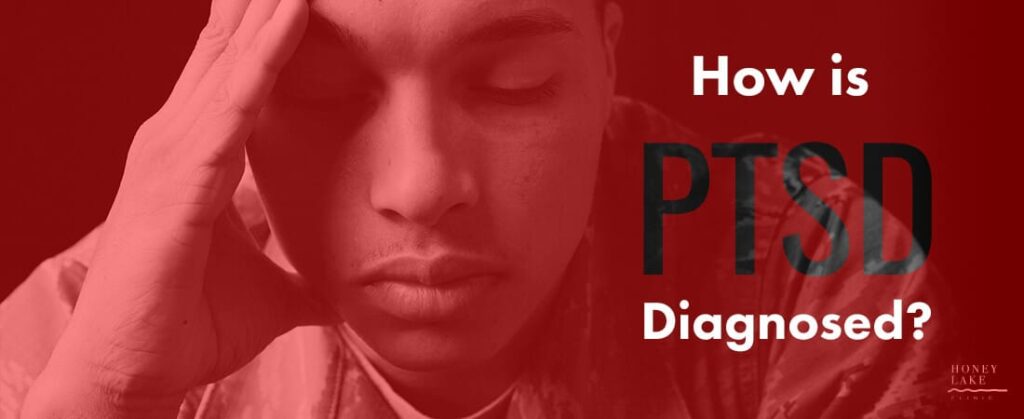How is PTSD Diagnosed?
Post-Traumatic Stress Disorder, or PTSD, is a mental health condition which sometimes develops after an individual experiences a traumatic event. It is often associated with violent or dangerous events such as physical or sexual abuse, combat, natural disasters and horrific accidents. People can develop PTSD after less personally violent yet still traumatic situations, such as seeing a loved one suffer harm or die.
How is a post-traumatic stress disorder (PTSD) diagnosis made?
Not everyone who has experienced a traumatic event develops PTSD. Many people experience traumatic events during their life. After a traumatic event, strong feelings of anxiety, sadness, or stress are normal. Some people may even experience some PTSD symptoms such as nightmares, memories about the event, or problems sleeping at night. But is it PTSD?
Mental health professionals look for specific requirements that must be met in order to make a diagnosis.
PTSD is characterized by recognizable symptoms. These occur because the sufferer hasn’t adequately processed the event. The trauma can keep resurfacing, causing as much distress as if it is happening again, amplifying anxieties and fears, impacting thought, mood and life.
Symptoms of PTSD are grouped into four clusters.
Re-experiencing symptoms:
- Flashbacks, hearing, seeing, or physically feeling events as if it is occurring again
- Nightmares, or flashbacks while asleep
- Frightening thoughts or images as a result of the event
- Emotions similar to those felt around or during the event
Avoidance symptoms
- Purposely avoiding places, events, or things that remind the person of the trauma
- Avoiding thoughts or feelings connected with the trauma
- Detachment from life
- Decreased motivation
- Relational distance or isolation
Arousal and reactivity symptoms
- Easily startled
- Tense feeling
- Insomnia
- Irritability
- Easily agitated, angered, frustrated
- Physically restless, edgy, pacing, tapping, hard to sit still
- Muscle tension, tremor, twitching
- Heartburn, diarrhea, stomach cramping
Cognitive and mood symptoms
- Memory issues
- Concentration or attention struggles
- Occasional confusion or feeling overwhelmed
- Negative self-defeating thoughts
- Distorted views about themselves, others, God, or various life activities
- Distorted feelings of guilt or self-blame
- Loss of interest in past hobbies or activities
- Lack of enjoyment
- Anxiety, depression, anger
Symptoms of PTSD usually begin shortly after the trauma but may sometimes take years to develop. They can be triggered by words, objects, feelings, people, or events reminiscent of the traumatic experience.
Are you or is someone you love suffering any combination of these symptoms after a traumatic experience or event? We can help.
Is PTSD treatable?
PTSD is complicated, with dangerous physical and psychological consequences if not treated properly. But be encouraged. The very good news is that PTSD is treatable, and the prognosis is good for those who seek help.
You may be thinking, “I can’t erase the past, so what can I really do about this?” While you cannot go back and undo events that have happened in the past, you can change the way you store those memories and how you react to and feel about them going forward.
A good assessment and an accurate diagnosis is your first step in treating PTSD. Getting the right specialists to implement the best-fitting treatment for your particular situation and symptoms is key.
At Honey Lake Clinic, our staff, licensed therapists, psychologists, and psychiatric specialists have expertise in assessing and experience in treating PTSD. Our multifaceted approach, involves healing of your mind, body, and spirit. This holistic approach will help you heal.
